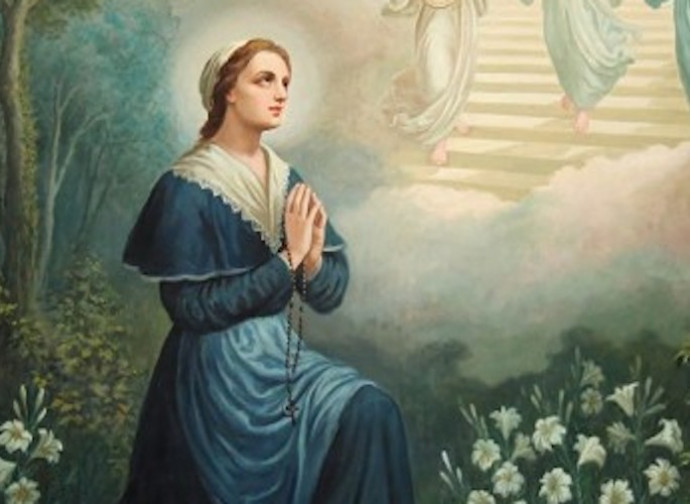Saint Angela Merici
During the Catholic Reformation which was a period of renewal in the Church, the seeds of which had been scattered well before the onset of Luther's heresy, Angela Merici (1474-1540), founder of the Ursulines, consecrated her life to educating girls to follow the ways of God.

During the Catholic Reformation which was a period of renewal in the Church, the seeds of which had been scattered well before the onset of Luther's heresy, Angela Merici (1474-1540), founder of the Ursulines, consecrated her life to educating girls to follow the ways of God. In the Rule, she wrote her prayer to the Lord that her will may conform to His will: "My Lord, my only life and hope [...], I pray: receive my free will, every act of my will, which by itself, infected as it is with sin, cannot discern good from evil. Receive all my thoughts, words and deeds, and, finally, all that I have inside and outside of me: I place it as an offering at the feet of your divine Majesty".
Angela was born in Desenzano del Garda, Northern Italy, to a family of farmers. Her father Giovanni would often read the lives of the saints to his wife and children, arousing great interest in her, who was particularly attracted to the figures of two great martyrs of antiquity: Saint Catherine of Alexandria and Saint Ursula. Still in her youth, after the death of her parents and sister, Angela became a Franciscan tertiary, dedicating herself to various works of corporal and spiritual mercy, which included teaching Catechism to girls and young women. One day, as she was praying during a break from work in the fields, she saw herself carried off upwards and, in the open sky she saw hosts of angels and virgins; to her relief, she also saw her deceased sister (for whose eternal fate she was distressed, due to her sudden death), who predicted that she would found a company of virgins.
In 1516 the Franciscans proposed that she move to Brescia to assist a widow. She went there, and in the next few years was a guest in several houses, busy with humble housework and nourishing her spirit with frequent Confession (a "necessary medicine for the wounds of our souls"), fasting, prayers and daily Mass, a practice that she would later recommend in the Rule. Attracted by her example, several women began to gather around her. It was at this time that she made several pilgrimages in Italy, to further her interior conversion; in 1524 she embarked for the Holy Land, and temporarily lost her sight during the journey, but – as she confided to Agostino Gallo, a friend involved in charitable works – "she saw the Holy Places through her inner eyes as if she had seen them with her outer ones", a fact that she interpreted as a sign of God, who acts according to inscrutable ways and calls men to accept his holy designs.
In the meantime, Angela's reputation for holiness grew. In the Jubilee of 1525 she declined an invitation from Clement VII to come to Rome. Eager to fulfil divine will, she continued her missionary work until she formed the Company of Saint Ursula, whose members did not wear the monastic habit but pledged to live in the world and meet periodically, wearing "modest and simple clothes, as virginal honesty truly requires." Without making any solemn vows, they preserved their virginity as an offer to God: virginity as the "queen of virtues and mistress of all goods." Thus was born the first all-female secular congregation. The first 28 young women were officially admitted to the Society on 25 November 1535, the feast of Saint Catharine of Alexandria.
A few months later, the Rule obtained the bishop's approval and in 1544, four years after Angela's death, the papal one. Seeing the increasing numbers of young people eager to put themselves at the service of God, Angela had founded additional branches of Ursulines. In the decades following her birth into heaven, cloistered and un-cloistered Ursuline companies arose alongside lay branches, and today there are various female congregations that bear this name, albeit with different rules and charisms. In her spiritual testament, Angela had recommended to the educators: "I beg you to remember all your children one by one, and keep them carved in your minds and hearts; and not only their names, but also the condition, nature and status and everything about them. This will not be difficult if you embrace them with fervent charity."
